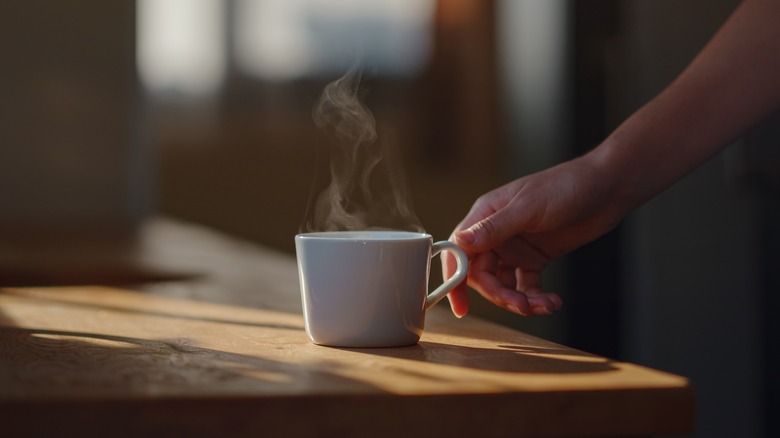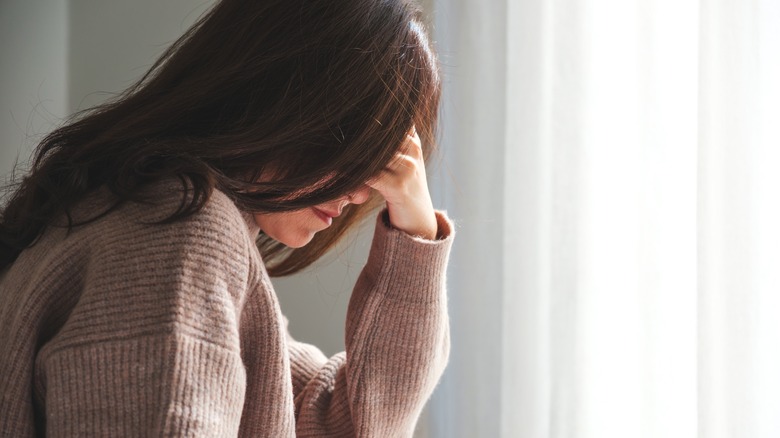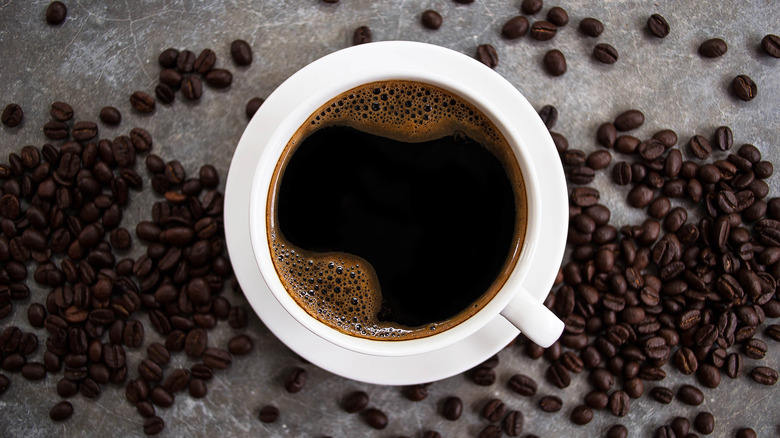Why Drinking Coffee (Kind Of) Works For Your Hangover
Few objectives galvanize the amateur scientist like the hunt for a hangover cure. Let's face it, not everyone can drink like Andre the Giant, and most of us are all too familiar with the lingering ghost of a night on the town. It's no wonder that so many people have tried to find a hangover cure, from greasy foods to the old "hair of the dog." The trouble is, none of these suggestions is really going to "cure" your hangover.
The truth is, researchers aren't entirely sure what causes a hangover, and it appears to be a multitude of factors. Alcohol can cause dehydration and sleeplessness. It also releases toxins into your body that can damage cells and cause headaches and gastrointestinal issues. All of these factors combine to create the set of symptoms that we know as a hangover. There is no known "cure" that can take care of all of these symptoms at once. However, you can address a couple of common hangover complaints with a cup of morning coffee.
Coffee can help you break through the grogginess that often accompanies a hangover, and there is even some research to suggest that caffeine can ease a hangover headache. Treating a hangover with coffee is a delicate act, however, because too much can actually make your symptoms worse. Here's why coffee does — and doesn't — work for your hangover.
Caffeine can ease headaches
Coffee has long been proposed as a hangover remedy, which is understandable given that caffeine's stimulatory effects make you more alert and able to process information. However, it was only in the past decade that research emerged revealing a deeper relationship between caffeine and hangovers. A 2010 study done by researchers at Thomas Jefferson University in Philadelphia uncovered the root cause of hangover headaches. Our bodies break alcohol down into a variety of by-products, including acetate, which researchers identified as the cause of head pain.
It turns out that caffeine is able to block the receptors responsible for acetate's painful effects, helping to alleviate hangover headaches. For the best effects, the researchers recommend combining caffeine with an NSAID pain reliever, such as ibuprofen. They recommend taking an NSAID at the end of your night of drinking and having a cup of coffee first thing in the morning. They also warn against drinking coffee at the same time as alcohol, since the caffeine will wear off well before the hangover hits. Plus, the effects of combining caffeine and alcohol aren't exactly good. It can lead to dangerous behaviors, and in some cases, it could even worsen your hangover.
Coffee can make a hangover worse if you drink too much of it
There's a reason that researchers recommend drinking just one cup of coffee to treat a hangover. Drinking more than that could potentially make your hangover symptoms worse. Caffeine is a diuretic (aka it makes you pee more). By flushing more fluid out of your body, diuretics can leave you dehydrated, and that's a big deal when it comes to hangovers. Alcohol is also a diuretic, so when you wake up from a night of drinking, you're already dehydrated. Add another diuretic (coffee) on top of that, and you can end up prolonging some of the symptoms of your hangover.
There are other, potentially more effective ways to treat a hangover. The best approach is, of course, to limit your drinking or choose liquors that are less likely to give you a hangover. You can also counter the diuretic effects of alcohol and caffeine by drinking plenty of water, ideally alternating between water and alcohol as you drink. If you still wake up with a hangover, it can help to drink something with electrolytes — such as Gatorade or Pedialyte — to rehydrate you. If you feel up to having breakfast with your coffee, it's best to avoid the old adage that greasy foods cure a hangover and pick something bland like toast to reduce any nausea you may experience.


